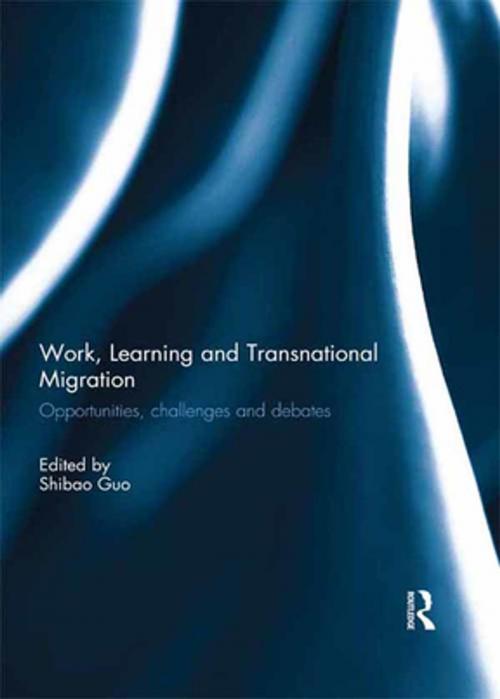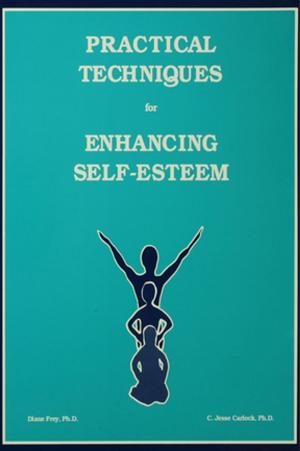Work, Learning and Transnational Migration
Opportunities, Challenges, and Debates
Nonfiction, Reference & Language, Education & Teaching| Author: | ISBN: | 9781317406068 | |
| Publisher: | Taylor and Francis | Publication: | February 2, 2018 |
| Imprint: | Routledge | Language: | English |
| Author: | |
| ISBN: | 9781317406068 |
| Publisher: | Taylor and Francis |
| Publication: | February 2, 2018 |
| Imprint: | Routledge |
| Language: | English |
As the globalisation of migration intensifies, many countries have joined the international competition for the most talented, skilful, and resourceful workers. More recently, migration has shifted from international to transnational, characterised by its multiple and circular flows across transnational spaces rather than singular or unidirectional movement. When transnational migrants arrive in a new country, many of them face multifaceted barriers when it comes to transitioning into work and learning in the host society.
Work, Learning and Transnational Migration examines the non-linear transition of work and learning for transnational migrants; the multiple barriers facing migrants in the process of transition; tensions between mobility, knowledge, and recognition; issues of language, power, and transnational identity; and how socio-cultural differences have been used to entrench social inequality in migrants’ transition. The rich international contexts and global perspectives provided across all chapters enrich our understanding about the changing nature of work and learning in the age of transnational migration. This book was originally published as a special issue of Globalisation, Societies and Education.
As the globalisation of migration intensifies, many countries have joined the international competition for the most talented, skilful, and resourceful workers. More recently, migration has shifted from international to transnational, characterised by its multiple and circular flows across transnational spaces rather than singular or unidirectional movement. When transnational migrants arrive in a new country, many of them face multifaceted barriers when it comes to transitioning into work and learning in the host society.
Work, Learning and Transnational Migration examines the non-linear transition of work and learning for transnational migrants; the multiple barriers facing migrants in the process of transition; tensions between mobility, knowledge, and recognition; issues of language, power, and transnational identity; and how socio-cultural differences have been used to entrench social inequality in migrants’ transition. The rich international contexts and global perspectives provided across all chapters enrich our understanding about the changing nature of work and learning in the age of transnational migration. This book was originally published as a special issue of Globalisation, Societies and Education.















